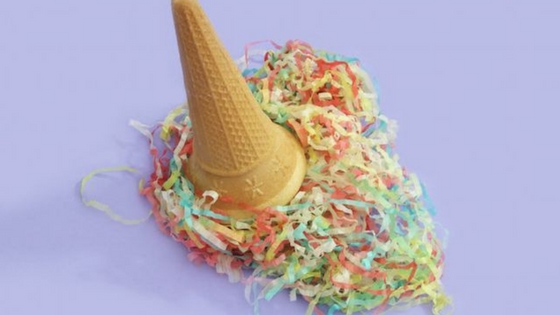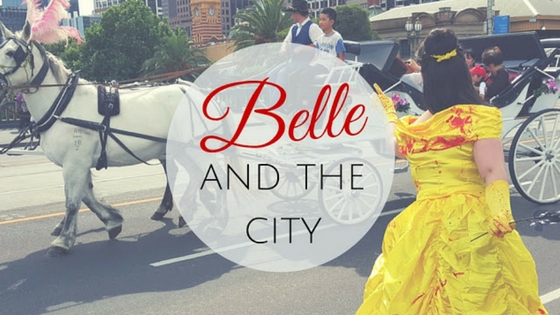We are living in a world where beauty is measurable
Do you remember that book about Feminism that I can't simply read without rolling my eyes and angrily shaking my fist at the pages? Well, here's another extract that will make you scream with me. If you've missed out on the previous article you can find it here.
Let's start off with the thought that Western women directly absorb from the Bible the idea that their bodies are second-rate. Naomi Wolf, the author of 'The beauty myth', writes that God creates Adam from clay, in his own image, and directly inspires his body with divinity. Eve is an expendable rib, twice removed from God's hand. Imperfect matter.
It gets worse.
Apparently, the book of Genesis explains that the reason behind women's craving for perfection is the belief that their bodies are inferior to men's, and why it is women who often need to offer their body to any male gaze that will legitimize them.
Let's start screaming in 3, 2, ...
You see, I don't agree with this categorical and negative image that the author has of women. I thought feminists should be more accepting of equality and open to embrace female qualities per se, whereas that last line is almost blaming the victim.
What I do find interesting about this book - 'The beauty myth', not the Bible - is that it offers a different key to interpret a reality now too familiar to us and that got us almost numb to its irony. For example, the idea that beauty nowadays is measured to make the result of our lifestyle choices unquestionable.
We live in the constant fear of the moment of truth: bikini ready body, visibly whitened teeth in two weeks, thicker and stronger hair in eight washes, immediately reduced wrinkles. The 'last judgement' weighs the penitent on a scale which does not lie. The packaging says so and the model is the proof to compare my human results to.
What we need is a firm understanding that all those measurable attributes, like thinness and youth, are not godly in themselves.
Let’s be honest: society doesn't really care if someone is thin or not, nor it cares about how ‘swishh’ my hair is. Also, no one ties a knot with their hair. Who came up with that totally scientific proof that your hair is strong?
What seems to matter is that people - Naomi talks of women specifically but I feel like this concept hugs everyone nowadays - remain willing to let others tell them what they can and cannot do with their daily life.
This opens our eyes to a new interpretation of 'fear of a name increases fear of the thing itself'. If there is a public figure of reference, everyone else is put to scale. Before whitening toothpaste nobody cared for white teeth. The simple fact of having some left was a great deal. Have you ever thought about that?
If you eat that cookie, society says, your hips will show your sin. If you don’t dedicate time to an accurate skincare routine your pores will be visible. If you don’t post that selfie how will people know you look even better than yesterday?
It's interesting how, talking about ageing, it seems that women need to worry about looking younger despite ageing just like men do. Men don't age any better than women physically. They do so only in terms of social status.
The day when anti wrinkles will solely target men, we will know that we finally became the monster that's haunting our society.
Post inspired by ‘The beauty myth’, written by Naomi Wolf
Image: via
Let's start off with the thought that Western women directly absorb from the Bible the idea that their bodies are second-rate. Naomi Wolf, the author of 'The beauty myth', writes that God creates Adam from clay, in his own image, and directly inspires his body with divinity. Eve is an expendable rib, twice removed from God's hand. Imperfect matter.
It gets worse.
Apparently, the book of Genesis explains that the reason behind women's craving for perfection is the belief that their bodies are inferior to men's, and why it is women who often need to offer their body to any male gaze that will legitimize them.
Let's start screaming in 3, 2, ...
You see, I don't agree with this categorical and negative image that the author has of women. I thought feminists should be more accepting of equality and open to embrace female qualities per se, whereas that last line is almost blaming the victim.
What I do find interesting about this book - 'The beauty myth', not the Bible - is that it offers a different key to interpret a reality now too familiar to us and that got us almost numb to its irony. For example, the idea that beauty nowadays is measured to make the result of our lifestyle choices unquestionable.
We live in the constant fear of the moment of truth: bikini ready body, visibly whitened teeth in two weeks, thicker and stronger hair in eight washes, immediately reduced wrinkles. The 'last judgement' weighs the penitent on a scale which does not lie. The packaging says so and the model is the proof to compare my human results to.
What we need is a firm understanding that all those measurable attributes, like thinness and youth, are not godly in themselves.
Let’s be honest: society doesn't really care if someone is thin or not, nor it cares about how ‘swishh’ my hair is. Also, no one ties a knot with their hair. Who came up with that totally scientific proof that your hair is strong?
What seems to matter is that people - Naomi talks of women specifically but I feel like this concept hugs everyone nowadays - remain willing to let others tell them what they can and cannot do with their daily life.
This opens our eyes to a new interpretation of 'fear of a name increases fear of the thing itself'. If there is a public figure of reference, everyone else is put to scale. Before whitening toothpaste nobody cared for white teeth. The simple fact of having some left was a great deal. Have you ever thought about that?
If you eat that cookie, society says, your hips will show your sin. If you don’t dedicate time to an accurate skincare routine your pores will be visible. If you don’t post that selfie how will people know you look even better than yesterday?
It's interesting how, talking about ageing, it seems that women need to worry about looking younger despite ageing just like men do. Men don't age any better than women physically. They do so only in terms of social status.
The day when anti wrinkles will solely target men, we will know that we finally became the monster that's haunting our society.
Post inspired by ‘The beauty myth’, written by Naomi Wolf
Image: via



Comments
Post a Comment